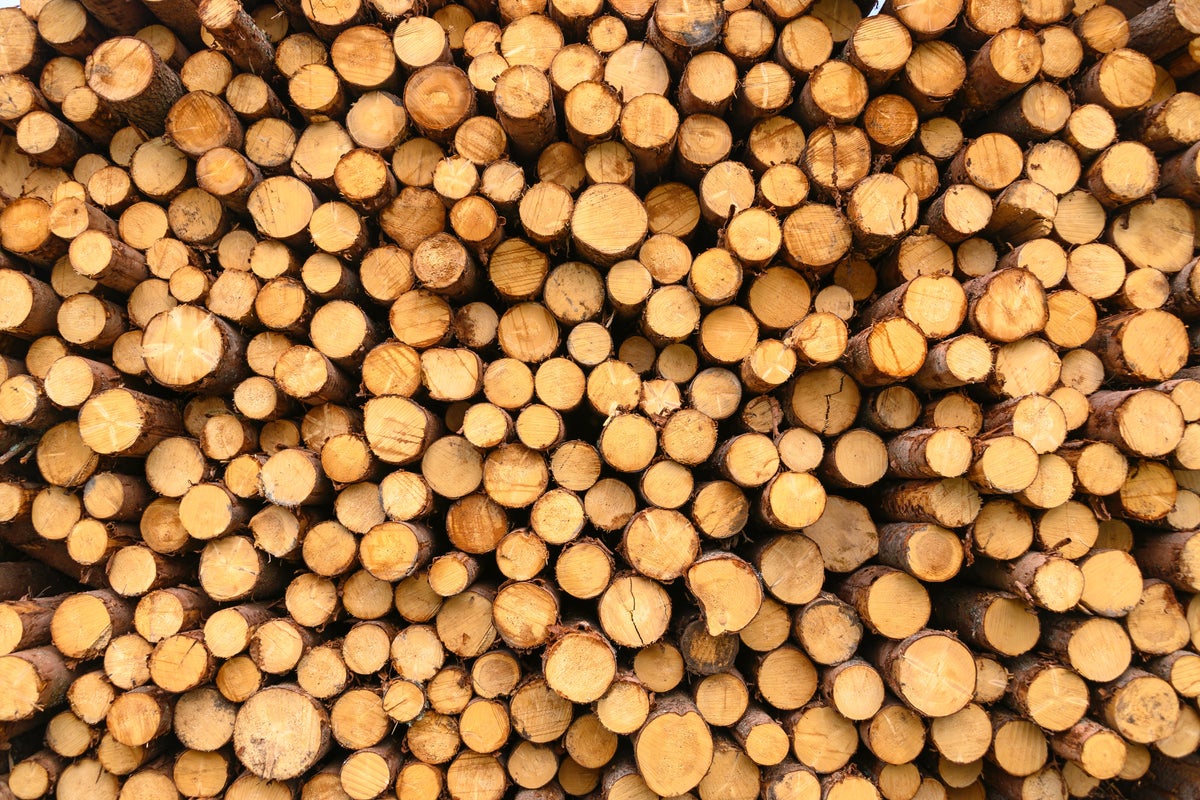Real estate investment trusts (REITs) that deal with timber harvest activities such as lumber products, and also manage forest land are known as timber REITs.
According to SP Global, Timber REITs have an average ten-year return of 8.5% as of Sept. 30, 2019.
In May 2021, Lumber prices peaked in the U.S. reaching a record high of $1,670.50 per thousand board feet, but have now stabilized to pre-pandemic prices.
See Also: Residential Versus Healthcare REITs: Why Bank Of America Changed Its Ratings On These 5 REITs
The National Association of Realtors (NAR) commissioned a report in 2021 that found the U.S. is dealing with a housing shortage of roughly 5.5 million houses. NAR reports that the gap is so large it could take more than a decade to eliminate.
With the housing shortage in mind and much of America’s infrastructure in need of being refurbished, it is not farfetched to expect lumber prices to remain elevated.
However, rising interest rates and a looming recession can depress the industry as fewer new construction projects are started.
Therefore, timber REITs could be poised to benefit from the housing demand that cools down due to rising interest rates.
- PotlatchDeltic Corporation PCH offers a dividend yield of 3.74% or $1.76 per share annually, using quarterly payments, with a decent track record of increasing its dividends for two consecutive years. PotlatchDeltic operates seven manufacturing facilities that produce lumber and plywood and owns nearly 2.2 million acres of timberland, managing forestland in Alabama, Arkansas, Idaho, Minnesota, and Mississippi. After producing an adjusted net income of $112.9 million on revenues of $359.6 million in the second quarter, PotlatchDeltic reported adjusted net income of $53.2 million on revenues of $306.7 million in the third quarter.
- Rayonier Inc. RYN offers a dividend yield of 3.18% or $1.14 per share annually, making quarterly payments, with an inconsistent track record of increasing its dividends. Touted as the second-largest timber REIT, it owns 2.7 million acres and derives revenue from certain core business segments: Southern Timber, Pacific Northwest Timber, New Zealand Timber, Real Estate, and Trading. During the third quarter, Rayonier saw net income of $21.6 million and revenues of $195.3 million down from the second quarter of net income of $24.1 million and revenues of $246.3 million.
- Weyerhaeuser Company WY offers a dividend yield of 2.18% or 72 cents per share annually, through quarterly payments, with an infrequent track record of increasing its dividends. Weyerhaeuser ranks among the world’s largest forest product companies owning over 11 million acres in the U.S., 14 million acres licensed in Canada, and 35 manufacturing facilities across North America. In the second quarter, Weyerhaeuser posted net income of $788 million on revenues of $2.97 billion, while the third-quarter net income was $310 million on revenues of $2.28 billion.
To read about the latest developments in the industry, check out Benzinga’s real estate home page
Image: Photo by Etienne Girardet on Unsplash
Image and article originally from www.benzinga.com. Read the original article here.

